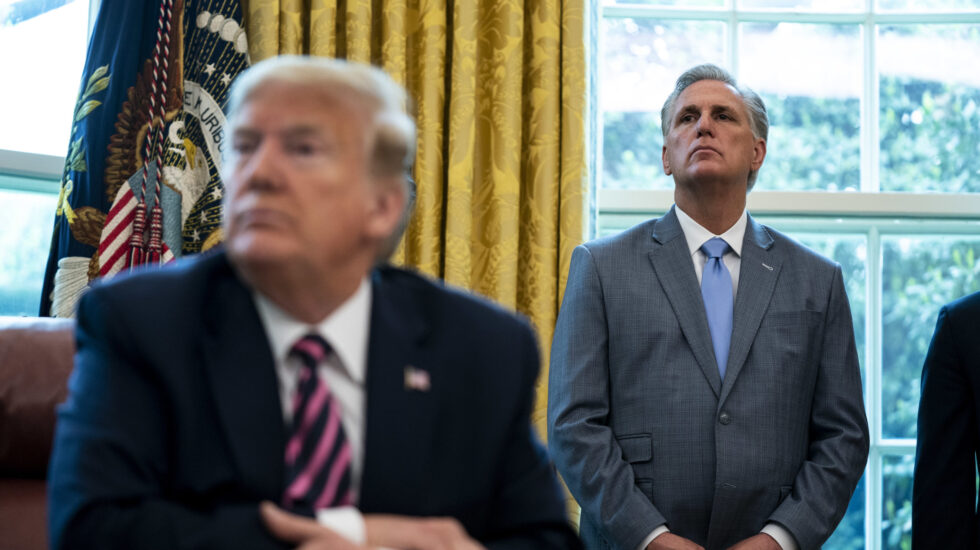On Tuesday, House Minority Leader Kevin McCarthy (R-CA) announced his opposition to a bipartisan, 9/11-style commission to study the January 6th riots at the U.S. Capitol. After months of delays and negotiations, the commission was proposed last week by the top Republican and the top Democrat on the House Homeland Security Committee.
McCarthy’s resistance comes despite several concessions won by Republicans – there would be an even number of partisans on the commission, for example, and both sides would have to approve subpoenas.
McCarthy insists that the events of January 6th are already well probed by the Justice Department and a pair of Senate committees. He said the commission would be “duplicative and potentially counterproductive.”
A potential commission might also create political problems for the California congressman and his political allies. McCarthy spoke with then-President Donal Trump while protesters took over the Capitol. That phone call could be the subject of a commission subpoena. Likewise, Axios reports that other members of the GOP are worried that the commission would be “weaponized to subpoena members.” Axios adds, “There are also concerns about how it might alienate members of the GOP base, as well as former President Trump — who was impeached by the House for inciting the riot.”
McCarthy has also spent several months trying to expand the scope of the commission to include violence by far-left protesters last summer. “The renewed focus by Democrats to now stand up an additional commission ignores the political violence that has struck American cities, a Republican Congressional baseball practice, and, most recently, the deadly attack on Capitol Police on April 2, 2021,” McCarthy said in a statement.
The legislation creating the commission is likely to pass the House, which is controlled by Democrats. But it faces a serious hurdle in the Senate, where it would have to clear 60 votes to prevent a GOP-led filibuster.



